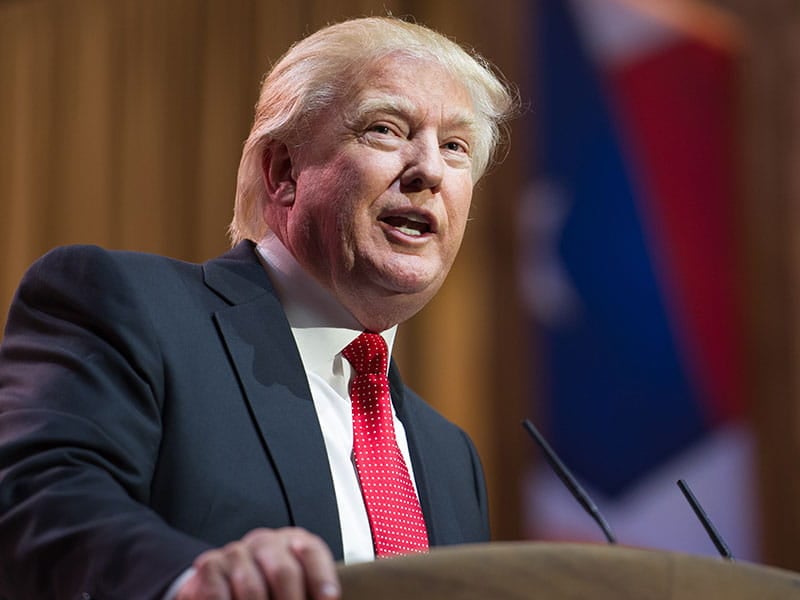As odd as that might sound, it's actually the logical conclusion of his long-stated position that government should give more money to faith-based groups. In a Beliefnet interview earlier this week, Bush made it clear just how much he would redefine traditional notions of separation of church and state.
He also spoke readily about how his personal faith in Jesus Christ--his understanding that he is a "lowly sinner"--has affected his political style. And he spoke openly (and surprisingly) about moments when he believed prayers of his had been answered.
Bush has long said he supports giving federal money to programs that teach the Bible to prisoners. Asked how he'd feel if money went to a Muslim program that taught the Qur'an, he said, "I wouldn't object at all--if the program worked."
When pressed on the basic constitutional question, Bush stood his ground:
Beliefnet: [You'd support that] even though, effectively, it would mean that taxpayer money would be going to help a group teach the Qur'an or the Bible?
Bush: Right. That's right. A results-oriented world says "Let's achieve some common objectives and some common goals and if teaching Bible study or the Qur'an is a method that works, we should welcome it, so long as it's a voluntary program."
Government for many years has paid religious groups to perform social services. Catholic Charities, for instance, gets government funding to help deliver social services to the poor--but not to teach Catholic doctrine.
In recent years, some legislators have wanted to expand what faith-based groups could do. The welfare reform law signed by President Clinton, and backed by Al Gore, allowed faith-based groups to retain their spiritual character while accepting government money. But even that law prohibited the groups from using taxpayer funds for "inherently religious" activities such as "sectarian worship, instruction, or proselytization."
But Bush's statements in the Beliefnet interview go even further. He says government money should help groups offer explicitly religious instruction--as long as the program reduces criminal recidivism, drug abuse, or some other social problem. Bush is, in effect, saying that immediate, pressing social goals like reduced drug use trump the constitutional issues.
Al Gore also supports giving more money to faith-based organizations, though he has spelled it out in less detail than Bush. In a speech in May 1999 he said he supported such an approach--often known as "charitable choice"--as long there is no "direct proselytizing as part of any publicly funded efforts.
In the Beliefnet interview, Bush also spoke openly about his personal faith. "I'm a lowly sinner, and to me that's the crux of the Christian religion," he said. "It's the great promise of Jesus Christ." This affects his political style, he said, because, "I treat people with respect. I don't feel like I'm better than anybody else."
Indeed, after mentioning for a second time that he was a lowly sinner, Bush seemed to become self-conscious, as if fearful that he'd be viewed as a tad too lowly for high office. "I feel like I have the ability to lead," he added. "I wouldn't be seeking the presidency if I wasn't confident that I could do the job."
One of the most curious moments in the interview came when Bush was asked whether there were particular instances in which he felt his prayers had been answered. Given his comments about how profoundly faith has changed his heart--and his strong belief in the "power of prayer"--one might have expected the answer to be about grave or profound moments in his spiritual life.
Instead, Bush paused as if trying to remember whether any particular prayers had been answered, and then said, "Well, for example, big press conferences at times. You'll notice, for example, I will bow my head just quietly just before I walk up to the mike. There are a lot of situations in which I find myself where there is a lot of pressure and, you know, a lot of attention, and those are moments where you just need to be clear thinking and resolute and calm."
It wasn't the only moment in the interview when it seemed the image of Bush as a Jesus-centered evangelical--an image Bush loves to convey--wasn't quite right. Asked why he never refers to himself as "born again," Bush said, "I don't know. I guess because the way I like to put it is, I rededicated my life to Christ." In the past, he has described his dedication to Christ as "an evolution," more than epiphany.
In this sense, Bush shows that he is still, to an extent belied by his accent, a New England mainline Methodist as much as he is a Southern evangelical. It's hard to imagine a typical Texas evangelical (a) saying it's OK to teach the Qur'an, (b) believing there are many "great faiths," and (c) having a hard time remembering a profound instance in which her prayers were answered. (Take the virtual tour of Bush's Dallas church for another glimpse at his spiritual style.)
Why does Bush talk about religion so much? He explained how interviews like this fit into his electoral strategy: "When you're running for president, people are always trying to get a glimpse into your soul and into your true being, and obviously religion is one way to describe who I am."

